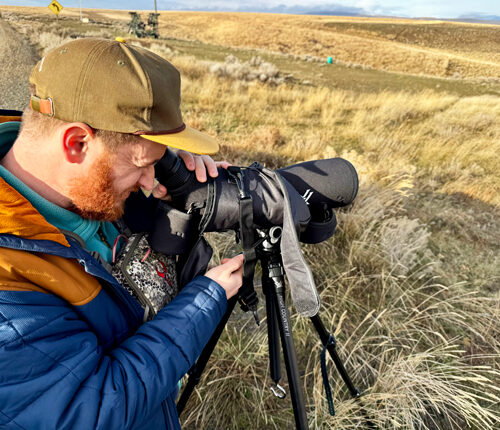
Washington Could Be First State To Ban Toxic Firefighting Foams
Washington lawmakers have agreed to ban firefighting foam that contains harmful chemicals.
Perfluorinated chemicals are used in firefighting foam to help contain petroleum fires. Firefighters have sprayed the foam around Washington’s military airstrips and fire-training facilities.
State lawmakers want Washington to be the first in the nation to ban perfluorinated chemicals in firefighting foam. (Other states, like New York and Vermont, already regulate the chemicals.)
“When these firefighting foams are sprayed out into the environment, they contaminate drinking water and the soils around the drinking water,” said Ivy Sager-Rosenthal, with Toxic-Free Future.
In animals, the chemicals have been linked to poor liver function and changes in reproductive hormones. Scientists are less certain about how the chemicals affect people, but it might cause certain cancers, thyroid problems and pregnancy-induced hypertension.
State Sen. Kevin Van De Wege, D-Sequim, is one of the bill’s sponsors and a firefighter. He said the No. 1 cause of death for firefighters is cancer.
“By phasing out this foam, we can protect groundwater and the health of firefighters who regularly use this foam to suppress fires,” he said. “There’s a lot of this foam around. It’s not used very much, and my goal is — over the coming years — to get it out of the state.”
Perfluorinated chemicals have been found at elevated levels in drinking water in several Washington communities near military airfields and fire-training facilities, including Coupeville, Issaquah, Whidbey Island and Airway Heights.
“These are communities in Washington state that are having to grapple with the serious health issue of contaminated drinking water. It’s expensive to fix, and it’s not good for their health,” Toxic-Free Future’s Sager-Rosenthal said.
If the bill is signed into law, firefighters could not train with perflourinated chemical firefighting foam starting July 1, 2018, and it could not be sold after July 1, 2020, unless it’s required by federal law or used by an oil refinery, oil terminal or chemical plant.
The plan would be to replace this type of foam with alternatives that don’t contain the toxic chemicals, Van De Wege said.
“Kind of the new strategy around fuel fires is to just let them burn out, if it does catch on fire. If you put it out, then you have a fuel spill and you have this chemical all over the place,” he said.
Toxic-Free Future hopes this bill will help make those alternatives more available and widely used across the country, Sager-Rosenthal said.
The bill has one more procedural vote before it can head to Gov. Jay Inslee’s desk.
Another bill before Washington lawmakers would ban perfluorinated chemicals in food wrappers, like microwave popcorn bags and French fry containers.
Related Stories:

How does climate affect your life? Tri-Cities survey open now
Cities, towns and counties are starting to plan for a future with climate change. Now, the Tri-Cities area is asking people about regional hazards and historical trends. (Credit: Simon Foot

Canadian leaders hope trade negotiations won’t derail Columbia River Treaty
A view of the Columbia River in British Columbia. The Columbia River Treaty is on “pause” while the Trump administration considers its policy options. However, recent comments by President Donald

Searching for sage grouse: Looking for a chicken-sized needle in south-central WA
Seth Hulett, Audubon Washington’s senior program manager of the Columbia Plateau, searches through his spotting scope for sage grouse. (Credit: Courtney Flatt / NWPB) Listen (Runtime 4:12) Read In south-central
Related Stories:

Head Start serves 15,000 kids in Washington. And its regional office just closed.
The regional Head Start office closed this week, making some advocates nervous about the program’s future. (Credit: Barnaby Wasson / Flickr Creative Commons) Listen (Runtime 1:00) Read The regional Head

Astronauta de la NASA José Hernández inspira a estudiantes durante visita a Tri-Cities
EL astronauta de la NASA José Hernández visitó el este de Washington y compartió su historia de resiliencia y determinación con estudiantes locales.

Washington, Idaho rank high for public health emergency preparedness
Both states saw steady or increased funding for public health, but Idaho still among lowest for vaccinations.











